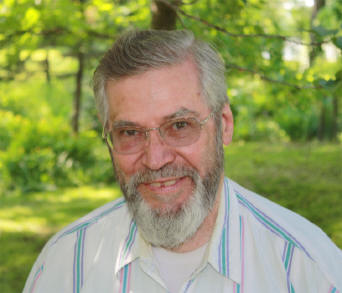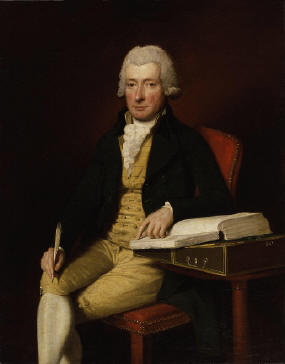Bill Meredith
"O winter, ruler of the inverted year… " From "The Task," by William Cowper, ca. 1785

(3/2016) I first noticed that I was having trouble remembering names five or six years ago, and it has now progressed to the point that I don’t remember appointments and schedules. In some ways this is an advantage; when you forget that you
were supposed to something, it can save a lot of work that probably wasn’t necessary in the first place. But forgetting can also put you in peculiar situations where you suddenly realize you’ve spent the last two hours doing something that has no logical explanation, and you don’t remember why you started it.
For example, about a week ago I started wondering what I should write about for March. I decided winter might be a suitable topic, and recalled a chapter about it in an ecology textbook that I could use for background… but I couldn’t find the book. Before I retired, my bookshelves were systematically organized by topics and authors, but that was 18
years ago. Books are not just inert objects; they are alive, and they move around if you don’t check on them regularly. I have known them to slide past each other from one end of the shelf to the other, or even jump to a different shelf sometimes. And now, in the place where the ecology book should have been, there was a copy of The Norton Anthology of English Literature.
 I had saved old textbooks from my college days, but I didn’t remember Norton, so I opened it; and I was right. It wasn’t mine; it was my daughter’s, evidently left behind after she graduated. Logically, I should have put it back on the shelf, and that would have been the end of the story… but it isn’t the kind of book you can just put back. At first
glance it is an ordinary-looking paperback, only 5 x 8 inches in size… but it weighs nearly three pounds and has 2,521 tissue-thin pages of small print, covering writings from Caedmon’s Hymn, around 680 A.D., to William Cowper in1800. So I did what anybody would do: I sat down, forgot what I had been looking for in the first place, and began skipping through it. After leafing
randomly for longer than I like to admit, I came upon a long poem by William Cowper, which contained the following lines:
I had saved old textbooks from my college days, but I didn’t remember Norton, so I opened it; and I was right. It wasn’t mine; it was my daughter’s, evidently left behind after she graduated. Logically, I should have put it back on the shelf, and that would have been the end of the story… but it isn’t the kind of book you can just put back. At first
glance it is an ordinary-looking paperback, only 5 x 8 inches in size… but it weighs nearly three pounds and has 2,521 tissue-thin pages of small print, covering writings from Caedmon’s Hymn, around 680 A.D., to William Cowper in1800. So I did what anybody would do: I sat down, forgot what I had been looking for in the first place, and began skipping through it. After leafing
randomly for longer than I like to admit, I came upon a long poem by William Cowper, which contained the following lines:
O winter, ruler of the inverted year,
Thy scattered hair with sleet like ashes filled,
Thy breath congealed upon thy lips, thy cheeks
Fringed with a beard made white with other snows
Than those of age, thy forehead wrapped in clouds,
A leafless branch thy scepter and thy throne
A sliding car, indebted to no wheels,
But urged by storms along its slippery way.
I love thee, all unlovely as thou seem’st,
And dreaded as thou art!
Well! Take away the Biblical Thees and Thous, and what remains is a description of winter that fits as well today as it did 230 years ago. Every line seems to be relevant. I don’t know what Cowper meant by "a sliding car" in 1785, but I know from personal experience what it means in 2016.
"Ruler of the inverted year?" I guess it is. There was a time when the calendar began with March as the first month, and the months had numbers instead of names; we still use some of them. The name of September is derived from the Latin word for "seventh month;" October, November and December are from the Latin for 8, 9 and 10. Early on, the Romans
changed some of these numbers for the names of gods or emperors. March was named for Mars, the Roman god of war, because in that month the weather allowed the roads to become passable so armies could march. And, of course, July and August were renamed to honor the Emperors, Julius and Augustus Caesar. So March could have been either the end of "the inverted year" or the
beginning of the new one, and ecologically its weather still keeps that pattern.
Ecological winter often begins in November… the biggest snowstorm I ever saw came on Thanksgiving, 1950… but this year we didn’t get a serious snowstorm until late in January, and with El Nino carrying on like it is, there’s no telling when winter weather will end. The birds are certainly confused. They started migrating south as usual last fall, but
because it stayed warm, a lot of them stopped somewhere up in Pennsylvania; except for a few strays, the pine siskins, white-crowned sparrows and purple finches still haven’t arrived at my feeder. At the Winter Solstice, December 22, the day was 9 hours and 24 minutes long; today (my wife’s birthday), it was 11 hours and 4 minutes long, which is a change of an hour and 20
minutes in photoperiod. My wife probably hasn’t noticed that, but wild creatures have. The downy woodpeckers at my feeder began courting last week, chasing each other up and down the plum tree; goldfinches are sprouting a few yellow feathers here and there; and male squirrels are starting to wag their tails seductively whenever a female appears. Winter rules their lives.
Winter has never been my favorite season, but I do love the beauty of new-fallen snow; and "unlovely" is the perfect description for the snow after it has been blackened by traffic. In Cowper’s time, it was literally a time to be dreaded; many of the poor in both cities and farms died of exposure or malnutrition when fuel and food became scarce, and
that still occurs among the homeless populations of our cities. When I was younger, I actually enjoyed the challenge of driving in snowy conditions; now, I don’t exactly dread it, but it certainly isn’t fun any more.
Cowper’s descriptions missed me in one respect: when I look into the mirror, I see a beard made white by age rather than snow. The accumulation of winters may account for what I see there, but not jut one winter itself; that is as it has always been. We adapt; we survive; and we hope. Looking out the window, I can see each tree bearing leafless
scepters; but I can also see buds enlarging on the maples, and I can tell that, in its own good time, winter will pass. Enjoy it with me.